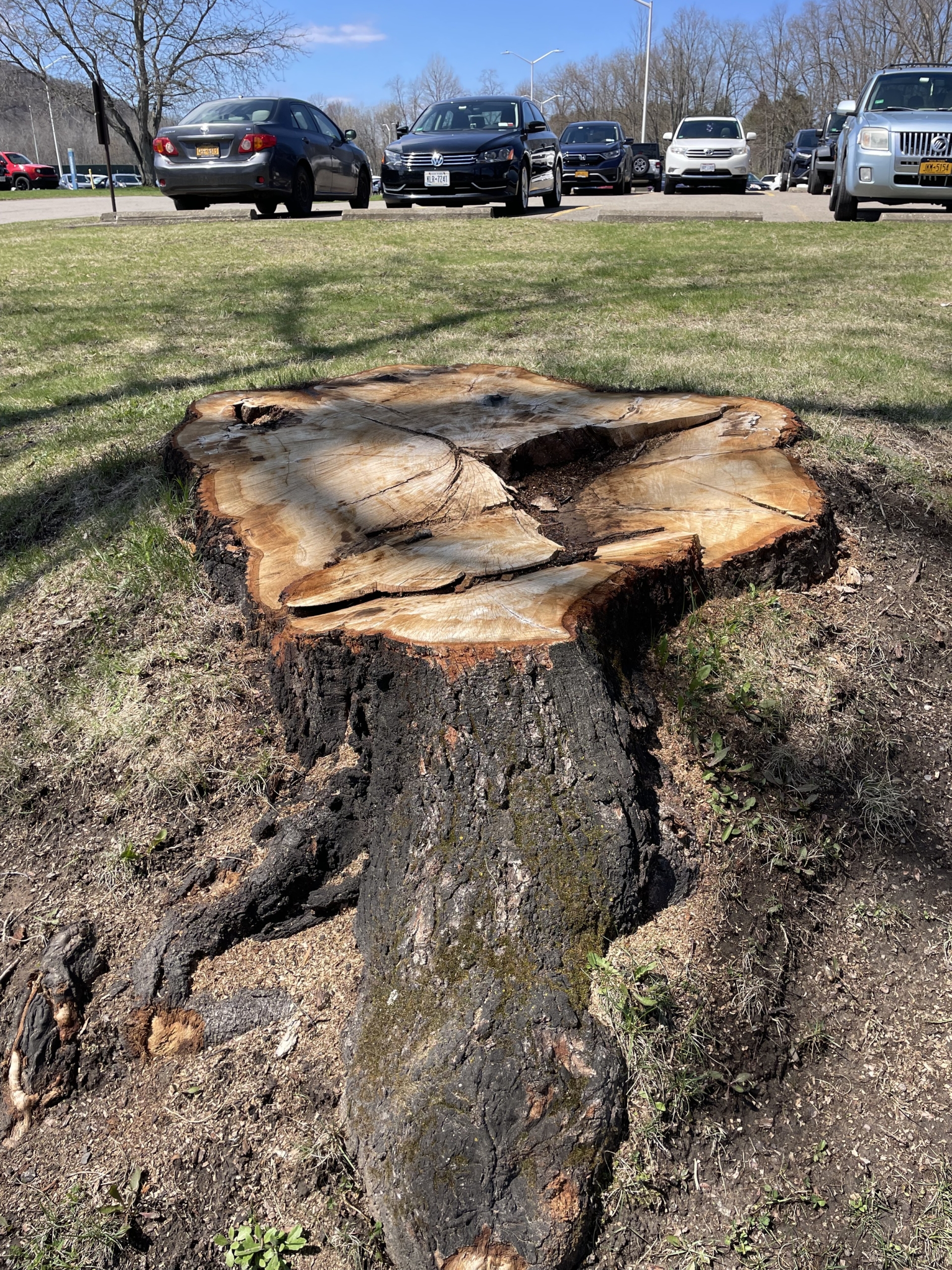Psychology professors offer advice for how to cope with schoolwork anxiety
With finals week only about a week away, several students are experiencing stress.
Janayzia Johnson, a junior strategic communication and classical languages double major, is one such student.
“So, my whole entire life is stress, and it doesn’t make me feel better that one of my exams is at 8:30 in the morning,” said Johnson. “It’s also more along the lines of the projects before the final exam, because I feel like those are slightly harder.”
Johnson has said that this stress has had severe effects on her life, even prompting depression.
“Some days I don’t even want to go to class because I am reminded of the constant stress of school,” said Johnson. “It does terrible things to your mental health.”
Marisol Woods, a freshman English and Spanish double major, has also said that she is feeling stressed for the upcoming exams.
“I am debating whether or not I get sleep. I have been talking to my parents about when I will be going home even though the schedule itself is confusing,” said Woods. “It didn’t help when the professors had a different schedule from the students, so no one knew when we were taking the exams.”
Stephanie Vogel, an assistant professor and the psychology department chair, said that she sees this anxiety in many of her students.
“The students stop sleeping and they’re pulling all-nighters on finals and midterm week,” said Vogel.
She said that this stress is largely the result of pressure the students are putting on themselves.
“Anxiety is not a bad thing to have. It’s actually something that motivates us,” said Vogel. “The problem is when it gets too high, our performance decreases significantly. It is good to have some, a medium amount, but not too much.”
Kelly Fitzgerald, a freshman elementary education major, said that she wished the school would provide more options to help students destress.
Paris Freeman, a junior theater major, and Daniel Bakowski, a sophomore political science and international studies double major, both said they are not constantly stressed like some others.
“It depends on the class. For a couple of them, I am pretty chill, but there’s a couple of classes where I’m stressed as all get out,” said Freeman. “I’m in one class where we haven’t even gotten our first test grade back, so I don’t know where I stand in this class. I’m a little shaky about it.”
Bakowski said he felt no stress at all going into finals week.
“I think it just comes with having a year already under my belt of college courses and understanding how exams kind of work, that they aren’t as scary as you might think they are at first glance,” said Bakowski.
Woods said it can be especially hard when deadlines pile up.
“Most of my exams are in fact final essays, which all have similar deadlines, which is like one after another after another after another,” said Woods. “Some essays are within classes that have exam tests, also. It just makes my life so much harder and more stressful.”
When students are putting too much stress on themselves and they have higher anxiety levels, then it can affect their everyday lives, according to Vogel.
“Likely they will stop doing things that they used to enjoy, they will rarely feel happy, or they could be the opposite. They could be avoiding all of those stressors,” said Vogel. “So, the grades will go down because they’re not studying as much. Either presentation is possible.”
Vogel also said that students have to be aware of what is happening inside of themselves. She said that when grades start to drop because they are putting off studying, or on the other extreme they are isolating themselves as a result of too much studying, those are signs that the stress is getting to them.
Woods said that she has suffered from the effects of stress.
“My mental health has gone to s***,” said Woods. “I have had two mental breakdowns already. My mental health probably won’t be restored until I leave.”
Freeman also said that she is feeling the struggles that come with anxiety.
“I’m exhausted almost permanently now. I’m noticing the more stressed I get, the more disheveled everything becomes,” said Freeman. “It just kind of slowly moves into everything is a chaotic mess, and it just kind of reflects the way my brain is right now.”
Vogel said she does see a large change in stress levels of students between regular times and crunch periods like finals week.
“I have a lot more questions that are anxiety-based rather than material-based, like, ‘What do I have to get on this exam in order to pass?’ There is a lot more muscle tension, both in student’s faces and their bodies,” said Vogel. “The last week before classes are over, everybody just looks tired and when they walk into finals, it’s the same way. They just look exhausted, and it’s probably because they’ve been studying so much and exerting so much mental energy.”
Many students expressed ways in which they try to fight against these stresses.
“I play video games sometimes,” said Johnson. “I got a new game that I like. Whenever I get stressed, sometimes I play that game.”
Woods said she uses sleep as a way to cope with the anxiety.
“Usually though, for me personally, I don’t sleep often on my bed,” said Woods. “If I stay there, I am not leaving.”
Woods said she also uses Café La Verna as a mechanism to combat the stress.
“I will sometimes just say, ‘Okay. From now until this time you do nothing.’ I’ll just play my games. I’ll listen to music. I’ll go into the Hickey, sit by myself and just relax or I’ll go to dinner and just hang out with friends,” said Woods. “I’ll do stuff that does not require me thinking about work.”
Fitzgerald also had methods to fight anxiety.
“I like to meditate to destress,” said Fitzgerald. “I like to hang out with friends, but right now it feels like I am rolling down a hill and I’m never going to stop.”
Freeman said they will take breaks from studying to watch a YouTube video.
Vogel put forth some methods to fight stress.
“Time management is the best thing to prevent this anxiety,” said Vogel. “One of the things that I think creates a lot of stress for students is that they put off studying until the last minute.”
Vogel also said eating healthy and exercising are both proven to be relievers of anxiety.
Darryl Mayeaux, a professor of psychology on campus, said he is familiar with the research on exercise.
“One way to help alleviate stress is to engage in some kind of physical activity like an endurance activity for a little while,” said Mayeaux. “In doing that, when you go back to whatever it is that you need to work on, that stress level is going to be reduced.”
Vogel also said sleep is important.
“You have to have sleep in order to consolidate what you’re learning, so all-nighters are not a good thing even though people still do them,” said Vogel.
Mental health breaks are another option Vogel mentioned.
“Once an hour, if you’re studying really hard, take five or 10 minutes just to do something you enjoy,” said Vogel. “That will help you to come back to your studies with a better mindset. It also rewards yourself.”
Woods expressed skepticism toward many of the recommended methods of destressing.
“You’re asking the people who are inducing the stress for advice on how to relieve stress,” said Woods. “They are undergoing the same amount of stress because of the amount of assignments that they have piled up while having to teach us.”
Woods said she was specifically talking about faculty members and professors.
“You can’t tell me, ‘If you go exercise you’ll feel more relieved. If you go take a nap, you’ll feel fine,’” said Woods. “If I take a nap, then I am going to forget about that assignment that you sent me at 3 a.m., saying that I have due in two days.”
Woods said it does get better.
“A lot of students know that it does get easier after this stretch. If there are points where you’re lazy and don’t feel motivated, know that’s normal,” said Woods. “Sometimes you just get to a point where you’re burnt out.”
Vogel said the stress levels vary student to student.
“I also have other students that are always completely laid back,” said Vogel. “So, it really depends on the person.”
Vogel also said that students should seek help if the anxiety in their lives becomes perpetual.
“If you find that anxiety is a problem for you a lot, especially exam anxiety and test anxiety, we have resources here on campus that can help people deal better with that stress, like the Wellness Center,” said Vogel. “There are therapists over there that are free-of-charge that can help individuals deal with the stressors of college life, and there are many.”
By Landon Allison, News Editor
allisolj17@bonaventure.edu




